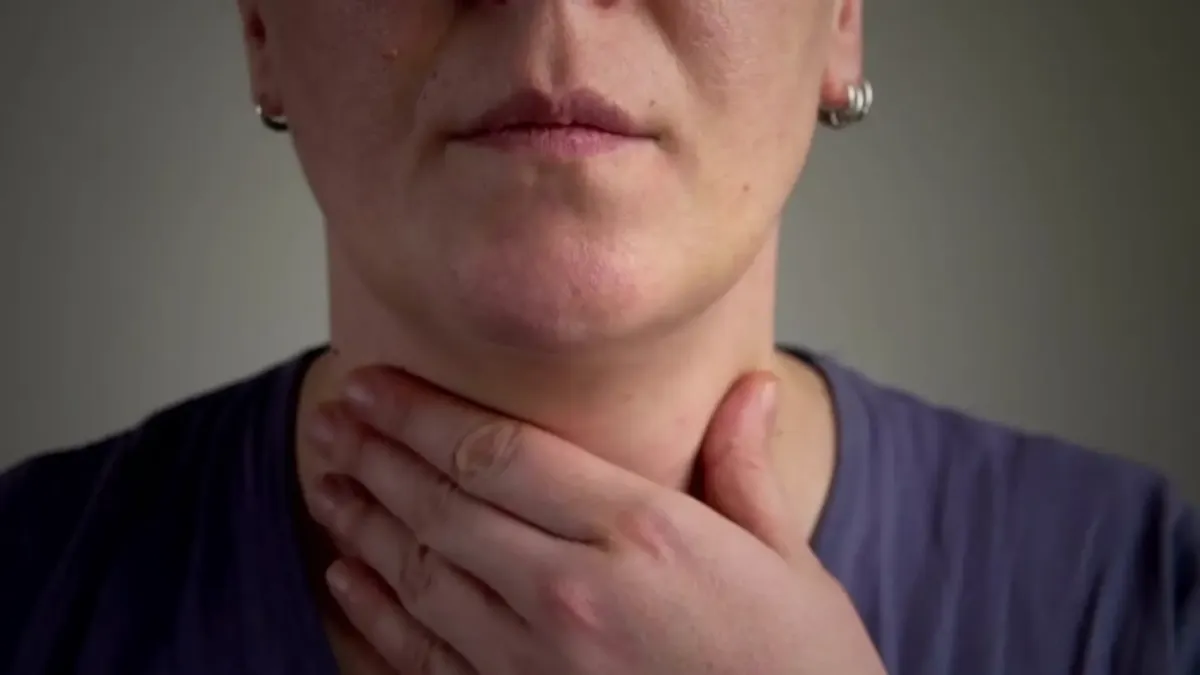MENU
BLOG

Treating Sex Hormone Imbalances
Sex hormones are that are involved in the regulation of sexual development and reproduction. The primary sex hormones are estrogen, progesterone, and testosterone. Men and women have all of these, just in different amounts and ratios...
When men and women have low energy caused by an imbalance in their sex hormones, it is usually from different hormones. For men, it is usually due to a testosterone deficiency. For women, it is usually due to estrogen and/or progesterone imbalances.

Sex Hormones & Low Energy
The symptoms of menopause are no joke. They are incredibly uncomfortable and can change the quality of your life significantly. When a woman comes to me with menopausal symptoms, she is usually pretty desperate for relief. I use both natural and pharmaceutical therapies to get her that relief.

Treating Thyroid Disease
I am a big believer in natural medicine. It can be very powerful and work very well. I prefer to use it as long as the natural treatment is safe and strong. Unfortunately, when treating low thyroid, we usually need both the natural and the prescription treatments. In college, I learned from playing the card game euchre not to “send a boy to do a man’s job.” In medicine, this means using the treatment that you know will work. If I think a natural treatment will work, but I know that a medication will work, I should use the medication as long as there are no significant side effects. This is because I want to make sure you get results right away so that you can get your life back

Treating Thyroid Disease
Thyroid disease is one of the most common health problems we face today. The majority of people with thyroid dysfunction have hypothyroidism. Hypothyroidism (“hypo” means low) is a condition where the amount of thyroid hormone in your body is less than what is needed for optimal function. According to the American Thyroid Association, more than 12 percent of the US population will develop a thyroid condition during their lifetimes, and more than half will be unaware that they have a problem. Women are five to eight times as likely as men to develop thyroid problems.

Advanced Adrenal Recommendations
Last week, I went over the recommended supplements to treat Adrenal Fatigue. This week I’ll go over adrenal recommendations as well as a plan to reduce stressors.
Treating the physical symptoms is only the first step. Once you start to feel better, it’s important to begin addressing the causes of the problem: the sources of stress that compromised your adrenals in the first place.

Testing & Supplement Options for Adrenal Fatigue
Last week we discussed the main symptoms as well as the causes of adrenal fatigue. This week, I will focus on testing and supplement options for treatment.
If you have most of the symptoms listed last week, you probably have adrenal fatigue. However, how do we test for adrenal dysfunction?

How Adrenal Fatigue Causes Chronic Fatigue
This week I will discuss how adrenal fatigue is a primary cause of chronic fatigue.
It's estimated that up to 80% of adults experience adrenal fatigue during their lifetimes, yet it remains one of the most under-diagnosed illnesses in the United States. Conventional medicine does not yet recognize adrenal fatigue as a distinct syndrome

Food Allergies & Low Energy
Food allergies can cause almost any symptom the body can manifest, including low energy. The gastrointestinal tract maintains a delicate balance of good bacteria, specialized immune cells, and various neurological and hormonal activities. In fact, 80% of your immune system resides in your gut, so anything you put in your mouth can trigger a reaction. Once your digestive system detects what it considers a “foreign particle,” your immune system reacts, and the inflammation that follows creates pain and dysfunction.

Food and Your Energy
Food is a touchy subject, especially if you’re not feeling well. We have a lot of emotional attachments to it, and it can give us joy at times when nothing else can. However, food allergies play a significant role as a cause and contributor to fatigue and, as a doctor, I have seen amazing improvements in the health of my patients when they change their food choices.

Why Is It So Hard To Treat Fatigue?
It's safe to say that most of us have experienced low energy at some point in our lives. Whether it's the result of a busy lifestyle, a lack of sleep, or something more serious, fatigue can take a toll on our bodies and our minds, especially if it becomes persistent. If you have persistent fatigue that is interfering with your quality of life and have not been able to find a doctor who can help, keep reading. In this article, we'll take a closer look at fatigue, why it is so difficult to treat, and explore some of the top causes.
What is Fatigue?
Fatigue is an epidemic in this country: according to the Centers for Disease Control, between one and four million people in the United States have chronic fatigue syndrome. However, only 20 percent of these people are diagnosed.
The CDC uses the 1994 CFS case definition, which requires meeting three criteria:
The individual has had severe chronic fatigue for six or more consecutive months, and the fatigue is not due to ongoing exertion or other medical conditions associated with fatigue. (These other conditions need to be ruled out by a doctor after diagnostic tests have been conducted.)
The fatigue significantly interferes with daily activities and work.
The individual has four or more of the following eight symptoms concurrently:
Post-exertion malaise (fatigue after you exert yourself) lasting more than 24 hours
Unrefreshing sleep
Significant impairment of short-term memory or concentration
Muscle pain
Pain in the joints without swelling or redness
Headaches of a new type, pattern, or severity
Tender lymph nodes in the neck or armpit
A sore throat that is frequent or recurring
According to the CDC, a diagnosis of Chronic Fatigue Syndrome (CFS), these symptoms should have persisted or recurred during six or more consecutive months of illness, and they cannot have first appeared before the fatigue.
In 2015, the United States Institute of Medicine renamed CFS as systemic exertion intolerance disease (SEID). The three symptoms they say must be present for diagnosis are impaired day-to-day functioning because of fatigue, malaise after exertion (physical, cognitive, or emotional), and unrefreshing sleep. The symptoms must also be accompanied by either cognitive impairment or orthostatic intolerance (low blood pressure), or both.
This is a much broader definition and much closer to my definition of chronic fatigue: a fatigue that persists over time and is not relieved by rest. In contrast, acute fatigue is fatigue that resolves with rest. Anytime I mention fatigue, I am referring to chronic fatigue or SEID.
Why is it So Hard to Treat Fatigue?
If just one thing caused fatigue, it would be pretty easy to treat. Like strep throat: you have a pain in your throat caused by an infection that resolves when treated with antibiotics. It’s organized, simple, and logical. It fits our human thinking. But unfortunately, fatigue is not that simple.
Chronic fatigue has many different causes. Every person with fatigue has multiple causes, and these causes differ from person to person. One person’s fatigue may be caused by chronic infections and adrenal dysfunction, and another person’s fatigue may be caused by thyroid disease, mercury toxicity, and mold toxicity.
This is why it is so hard to treat. Also, when you are treating multiple causes, often you may treat several causes without an improvement in symptoms. This is because all the causes need to be treated for the body to reach a state of balance and achieve symptom relief.
The way I describe it to my patients is to imagine that they have sixteen nails sticking out of the bottom of their foot, causing them pain. The more nails I remove, the less pain they will have, but they will still have pain until I remove all of them.
To figure out the causes of your fatigue, we will be using your symptoms, physical signs, and laboratory testing. Once we find the causes, we can resolve them.
First, we need to make sure your fatigue is not resulting from a major medical illness like diabetes, cancer, or cardiovascular disease. Your medical provider can rule these out.
The Real Causes of Fatigue
My clinical experience and research have revealed the following top causes of fatigue.
Sleep: Restorative sleep is essential for resolving fatigue.
Dehydration: Most of us live in a state of chronic dehydration. Consuming enough water improves waste elimination and provides energy to the cells.
Food toxins: Foods can be good for you or bad for you, depending on how your immune system reacts to them. Food allergies and sensitivities can zap your energy and lead to fatigue.
Lack of exercise and movement: Inadequate exercise and excess sitting play a significant role in fatigue and chronic disease today. Exercise elevates the mood and facilitates waste removal from the body. As humans, we need to move more—whether it's dancing, sports, or just taking the stairs. For people with fatigue, the last thing we want to do is exercise, and when we do, we suffer worse fatigue for days. So, we want to move our bodies only as much as we can without feeling worse.
Emotional stress and trauma: In today’s busy world, mental and emotional stressors are all too common. Whether the stress is from our work or home lives, or from chronic, underlying emotional trauma like post-traumatic stress disorder (PTSD), or adverse childhood events (ACEs), there is a significant amount of emotional work that needs to be done to relieve these stressors.
Adrenal gland dysfunction: The adrenal glands are small triangular glands that sit on top of your kidneys and are responsible for producing cortisol. Cortisol is the hormone that regulates your response to stress, including mental, emotional, and physical stressors. Assessing your adrenal function is crucial for regulating circadian rhythm, sleep, blood sugars, blood pressure, and energy.
Thyroid gland dysfunction: Despite experiencing fatigue and other symptoms of low thyroid, patients are frequently told that their thyroid function is “normal.” In reality, you probably have thyroid issues despite normal results on standard laboratory testing.
Sex hormone dysfunction: Deficiencies or imbalances in progesterone, estrogen, and testosterone in men and women contribute to fatigue, and it’s not just because you turned fifty!
Nutrient deficiencies: Deficiencies in iron, B12, folate, magnesium, and vitamin D are notorious for contributing to fatigue.
Mitochondrial dysfunction: The mitochondria are the energy centers of every cell in the body (except red blood cells). They are damaged by many other causes of fatigue: heavy metals, chemicals, molds, and infections.
Constipation: If you’re not stooling one to two times per day (preferably two), then you’re constipated. When you’re constipated, the toxins and waste products that you’re trying to remove from your body are instead being reabsorbed through the large intestine and back into the bloodstream. This increases the toxic burden on your body and contributes to fatigue.
Mold toxicity: Half of all the buildings in our country have water damage, and most of those are growing mold. Mold toxicity is a huge problem for many of my patients. If your home has mold, you will not get better until you get it out of your environment and your body.
Heavy metals, chemicals, and electromagnetic frequencies (EMFs): Today, toxic substances pollute our air, soil, food, and water. I discuss the best ways to assess what toxins you may have in your body and how to remove them in the post on metals and other toxins.
Infections: Infections from bacteria, spirochetes, parasites, viruses, fungi, and other microorganisms play a huge role in chronic fatigue.
Take Action
Join the conversation, share your story, and get support from people like you in our EnergyMD Facebook Group
Read more in my book on Amazon here
Share this article with your friends and loved ones on social media and help me achieve my mission of helping 1 million people resolve their chronic fatigue!

A safe space for all.
We're LGBTQ+ supportive
Copyright (c) EnergyMD







